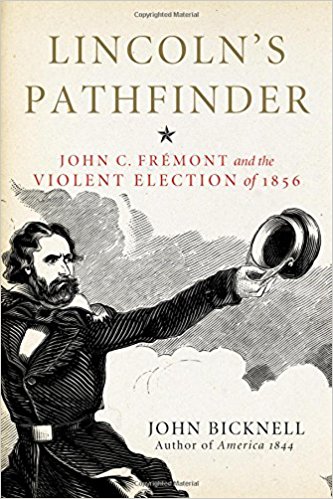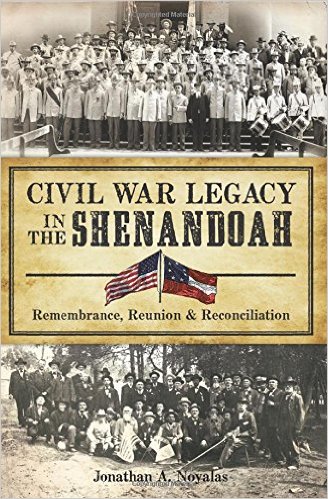Lincoln’s Pathfinder: John C. Frémont and the Violent Election of 1856 by John Bicknell. Chicago Review Press, Inc., 2017. Cloth, ISBN: 978-1613737972. $26.99.
 John Bicknell is an accomplished journalist and author who should be well known to scholars and students of the politics of 1840s and 1850s America. Bicknell previously authored America 1844, chronicling James K. Polk’s contest with Henry Clay for the presidency. In this volume, the author turns his gaze to the contentious election of 1856, which pitted James Buchanan, the Democratic candidate, against John Charles Frémont, the Republican Party’s first presidential nominee.
John Bicknell is an accomplished journalist and author who should be well known to scholars and students of the politics of 1840s and 1850s America. Bicknell previously authored America 1844, chronicling James K. Polk’s contest with Henry Clay for the presidency. In this volume, the author turns his gaze to the contentious election of 1856, which pitted James Buchanan, the Democratic candidate, against John Charles Frémont, the Republican Party’s first presidential nominee.
The seeds of Frémont’s fame were planted in his 1840s explorations of the American West and watered by his shameless penchant for self-promotion. More important to Americans than his journeys, which covered paths through Utah and along the Oregon Trial, were his broadly read journals. Helping him along, too, was his fortunate marriage to Jessie Benton Frémont, the politically adept daughter of a powerful Missouri Senator, and early champion of Westward Expansion.
Frémont’s fame up to 1856 outsized his actual exploits, he emerged in the tremors of Bleeding Kansas as a novel figure in American politics. While his ardent opposition to unshackling slavery from its geographic restrictions offered little that was new from previous Whig and Free Soil positions, his coupling of that issue to an unapologetic alliance with elements of the abolition movement and Know Nothings opened paths to a new coalition that could wrest power from Democratic hegemony. Frémont and his wife also joined the Republican banner to a vision of expansion that capitalized on his fame. As stated by William Webb, an enslaved, pro-Frémont Mississippian, “he gave the idea… [that] better times were coming” (295).
This volume is not an exploration of John Charles Frémont’s path to the Republican presidential nomination, including his exploits in the Bear Flag Revolt and California’s tumultuous early politics. Rather, it is a study of election of 1856—bookended by a prologue on the Kansas-Nebraska Act and an epilogue on the Dred Scott decision—in which Frémont’s political adversaries and contemporaries feature just as prominently.
The author has immersed himself in his subject, and in the primary sources and vast secondary literature, and has presented it in engaging and exacting prose. His central claim—that Frémont trail blazed a path for Lincoln to claim victory one election-cycle later—is meticulously sourced and authoritatively argued. While the author goes perhaps a little too far in stressing the uniqueness of Jessie Benton Frémont’s prominent and public role in the campaign, Bicknell’s contribution still meshes well with other recent literature detailing the public and political roles of women, such as Sarah Childress Polk and Mary Todd Lincoln. What is most impressive is that the author has contributed new insights on a romantic, if tragic, figure. This is a welcome volume with obvious value to both popular audiences and classroom settings.
Aaron David Hyams is Visiting Assistant Professor of History at Sam Houston State University.
